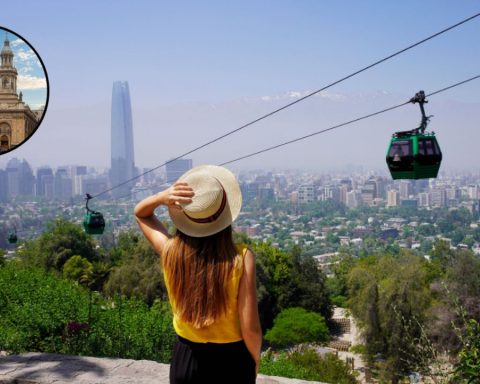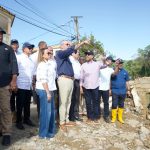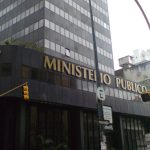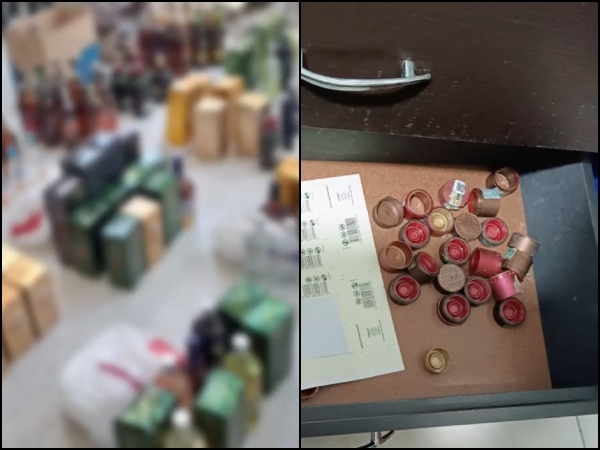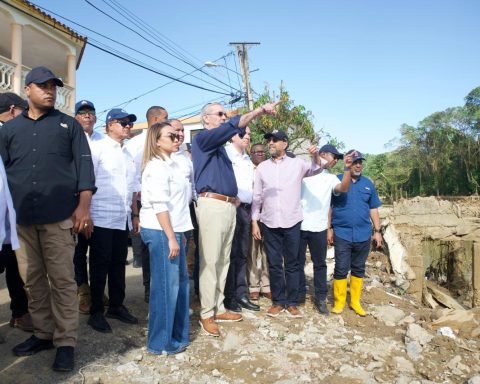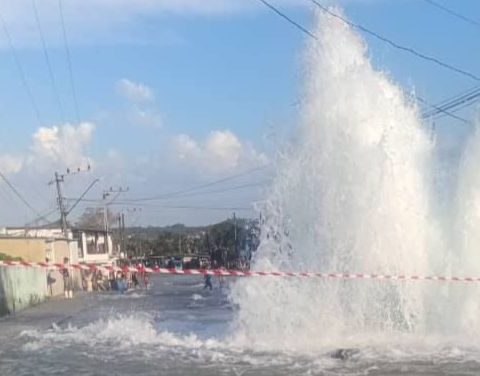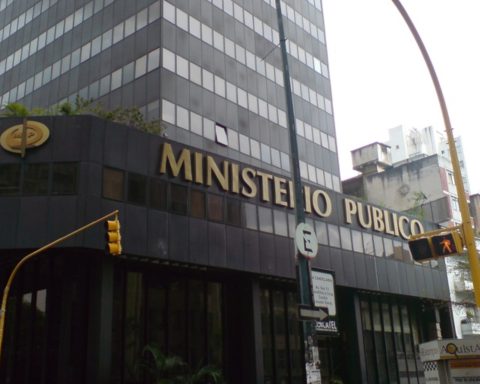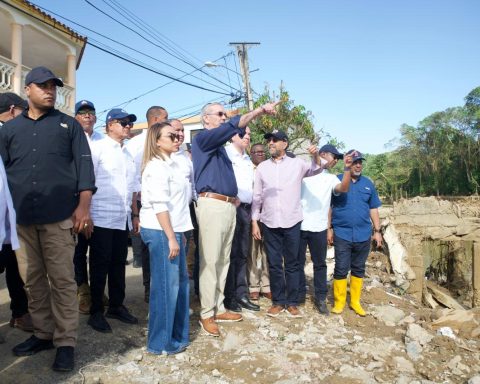At 6:00 p.m. this Monday, deputy Raúl Soto, from the Party for Democracy (PPD) and former president of the Lower House, at the foot of a staircase at the headquarters of Congress in Santiago, said to the cameras: “There is an agreement ”. This Monday, December 12, 99 days were counted since the proposal for a new Constitution was rejected on September 4 with 61.9% of the votes for the Rejection option.
Earlier, before the negotiations began on the third floor of the building, the deputy and president of Convergencia Social (CS) —the group of President Gabriel Boric—, Diego Ibáñez, and the also parliamentarian and Secretary General of National Renewal (RN), Diego Schalper.
The reason? Close to both parliamentarians, they assure that they had to “coordinate the last details”. conversations held by both parliamentarians.
The origin of the formula that Chile Vamos presented this Monday, projecting it in the room, where the different negotiators of the government alliance and the opposition met, dated back to Friday. According to those who were present at the meetings last week, one of the moments of greatest tension occurred when that day Zarko Luksic from Amarillos announced that, as the axis, that is, together with Chile Vamos, they would not accept the last proposal that the ruling party had put on the table.
It was a majority of elected representatives with experts who could draft the draft and vote on harmonization and transitional rules.
After the refusal, they say that Natalia Piergentili, president of the PPD, was the first to get up from the table —annoyed and tired, as she admitted on Sunday at Mesa Central—, as well as to go down the stairs to announce that they had no agreement.
After Piergentili went to the door, members of the ruling party who were there describe that Diego Schalper approached them and promised to bring a counterproposal this Monday.
Contacts between Ibáñez and Schalper
On Sunday Diego Schalper, who was drafting a formula to present on Monday with the influence of the UDI and the help of experts, contacted Ibáñez. Both, according to those close to them, held conversations by message and by telephone throughout the day to agree on certain issues of the proposal.
According to what those around them explained, both represented “the handle”, the most obstinate with their positions, and had built trust since the drafting of the institutional bases for the process. This explained the decision to hold a series of talks.
On Tuesday, November 6, when a mixed commission was promoted —with the voice and vote of the experts— and the knot had been in the percentage of each group that would integrate the space, from the opposition they specifically accused the deputy Diego Ibáñez of intransigence by refusing to to be available to a body that had voting experts.
That day and before the cameras, the deputy and head of the Evópoli bench, Francisco Undurraga, claimed that “to the question about whether it was feasible for the forces representing the current government to reach an agreement today, the deputy Diego Ibáñez said that ` no possibility”.
While one of the reasons given by the government alliance as the cause of not reaching an agreement, both on Wednesday and Friday, was an “inflexibility of the National Renewal shielded in Yellows”. Those present reported that by having the proposal of the left on Wednesday, December 7, which contemplated 50 electors, Schalper refused, since – according to what the parliamentarian would have said – the formula did not guarantee moderation and had refoundational spirits.
At 8:00 p.m., the government alliance had a meeting at the house of Paulina Vodanovic, president of the Socialist Party (PS). Diego Ibáñez did not arrive, however, according to one of the attendees, in that instance he described “how the hand” of the opposition for Monday was described, which is why not many of the ruling party were surprised by the proposal presented by Chile Vamos .
The common points between the final agreement and the proposal of Chile Vamos
The last proposal that had been pushed by Chile Vamos was that of Amarillos presented on Friday. The one that he presented this Monday was radically different and was more similar to the one that the left had promoted that same day.
In summary, the latest idea of the ruling party consisted of a body made up of 70 elected representatives and 30 experts. The second group would fulfill an advisory role and could vote in the last stage of drafting the new Constitution: harmonization and transitory regulations.
The main points included in the mechanism were:
-The drafting of a draft by a committee of experts (which would serve as a basis).
-A drafting body that works on the draft.
-Mixed commission for the final space where experts and chosen ones can resolve differences.
The document that bears the name “Constitutional Agreement, Definitive 2.0” and that has five pages, proposes:
-An expert commission made up of 24 people will draw up a preliminary draft that will serve as the basis for the drafting of the new constitutional text (it will be approved by 4/7).
-Constitutional Council made up of 50 people, electoral system applicable to senatorial constituencies, under universal and mandatory suffrage, with open lists made up of parties or party pacts (will approve by 3/5).
-Once the text of the new Constitution is ready and before harmonizing it, the Expert Committee will deliver a report to the Constitutional Council with proposals that improve the wording and understanding of the rules.
-The proposals will be voted on by the Constitutional Council: “Proposals for norms will be considered approved if they meet the quorum of 3/5 of their current members. On the contrary, the proposals of norms will be understood rejected each one by the 2/3 parts of the members in exercise”.
-If the result of the votes does not meet any of the above conditions, they will be resolved by a mixed commission made up of twelve people, including experts and directors in equal parts, who will hear the controversy and resolve with the vote of 3/ 5 parts of said instance.
-If said quorum is not achieved, the Expert Commission, within a period of 5 days, and by 3/5 of its members, will present a new proposal to the Constitutional Council so that the process can be repeated.
The idea that Chile Vamos promoted, under the pencil of Schalper and experts, was also in line with what Senator Javier Macaya (UDI) proposed on Friday morning. After the ruling party proposed on Wednesday a body of 50 elected plus non-voting advisers, on Friday the president of the UDI proposed a binding draft. This means that the elected editors should write the new Constitution based on the basic proposal of the experts.
Beyond the punctual idea, according to those present on Friday, the head of the UDI shared that it was key for the experts with the right to vote to have an impact.
The main knots during conversations
“We have to learn with great humility from the lessons of our history. Not only those of the recent past, and for this reason an agreement for Chile has been signed tonight with a significant number of political forces,” said Senator Álvaro Elizalde (PS) when they presented the “Agreement for Chile” in the hall of the Library of the National Congress in Santiago at 10 pm.
The most critical point during the day on Monday was the quorum of the Constitutional Council. They report that the deputy Diego Ibáñez pushed the option that in order to approve a constitutional norm, 2/3 of the members would be required, while the right proposed 4/7. Finally it was in an intermediate point: 3/5.
The other parties interpreted Ibáñez’s insistence on a 2/3 quorum as a way of defending the positions of the left for fear of having a bad electoral performance. This is due to the result of the plebiscite on September 4, since the elections are set for April 2023, the same month that, according to a report from the secretariat of the Chamber of Deputies, a new pension fund withdrawal may be tabled.
That the resolution of controversies between the Constitutional Council and the expert commission leads to a mixed commission from the right was commented in reserve that it was a kind of “legal joke.” Since not reaching an agreement with the recommendation of the experts would be a problem for the editors. With which, they explain, they were satisfied.
From the ruling party they admit that this idea was not entirely to their liking, however, they explain that it was one of the issues on which they gave in to avoid the idea that once the proposed Constitution was ready, it would have to be ratified by 4/7 of Congress. —a proposal that arose from the conversation between President Gabriel Boric and the head of the UDI, Javier Macaya.
Another of the issues that caused resentment in the government alliance was the number of elected, since 70 were pushed from the left and it remained at 50. They explain who was part of the negotiations and from the ruling party, that reducing the number of editors was the bargaining chip so that experts could have a limited vote (only through the aforementioned mechanisms).
Although all the groups were satisfied, being clear that they had reached “an imperfect agreement”, as Gabriel Boric urged them on Wednesday, December 7, members of the opposition asked for realism and said: “Now we must see if the votes are there, the parliamentarians they can always be torn off.”

